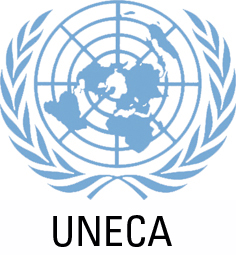Focal point
Location
P.O. Box 3001
Addis Ababa, Ethiopia
Established by the Economic and Social Council (ECOSOC) of the United Nations (UN) in 1958 as one of the UN's five regional commissions, ECA's mandate is to promote the economic and social development of its member States, foster intra-regional integration, and promote international cooperation for Africa's development.
Made up of 54 member States, and playing a dual role as a regional arm of the UN and as a key component of the African institutional landscape, ECA is well positioned to make unique contributions to address the Continent’s development challenges.
ECA’s thematic areas of focus are as follows:
- Macroeconomic Policy
- Regional Integration and Trade
- Social Development
- Natural Resources
- Innovation and Technology
- Gender
- Governance
Members:
Resources
Displaying 326 - 330 of 872Spatial data infrastructure developing trends and challenges
Administrators and politicians are beginning to recognize spatial information as a national re source as well as a part of the basic infrastructure that needs to be efficiently coordinated and managed in the interest of the nation. It is very important to develop policies for standardization, legal aspects, pricing, distribution, etc. Spatial Data Infrastructure is conceived to be: an umbrella of policies, standards and procedures under which organisations and technologies interact to foster more efficient use, management and production of spatial data.
Development of spatial data infrastructure in Lesotho
Spatial data is crucial for sustainable land management and environmental protection; therefore the development of spatial data infrastructure (SDI) ensures accessibility of information for decision-making. Many national organizations have begun to recognize the need to justify the large public investments they receive by improving access and encouraging a broader use of the information in their custody.
WTO African group : joint proposal on the negotiations on agriculture
The importance of agriculture in the economies of African countries cannot be overstated. Notwithstanding geographic and climatic diversity and other country specificities, the agricultural sector in African countries is the main source of rural livelihoods and, in general, employs more than two-thirds of the labour force. Agriculture generates more than a third of GDP in most African countries, and accounts for up to 40 per cent of exports. Most African countries have undertaken autonomous liberalization in agriculture.
WTO African group : joint proposal on the negotiations on agriculture
The importance of agriculture in the economies of African countries cannot be overstated. Notwithstanding geographic and climatic diversity and other country specificities, the agricultural sector in African countries is the main source of rural livelihoods and, in general, employs more than two-thirds of the labour force. Agriculture generates more than a third of GDP in most African countries, and accounts for up to 40 per cent of exports. Most African countries have undertaken autonomous liberalization in agriculture.


